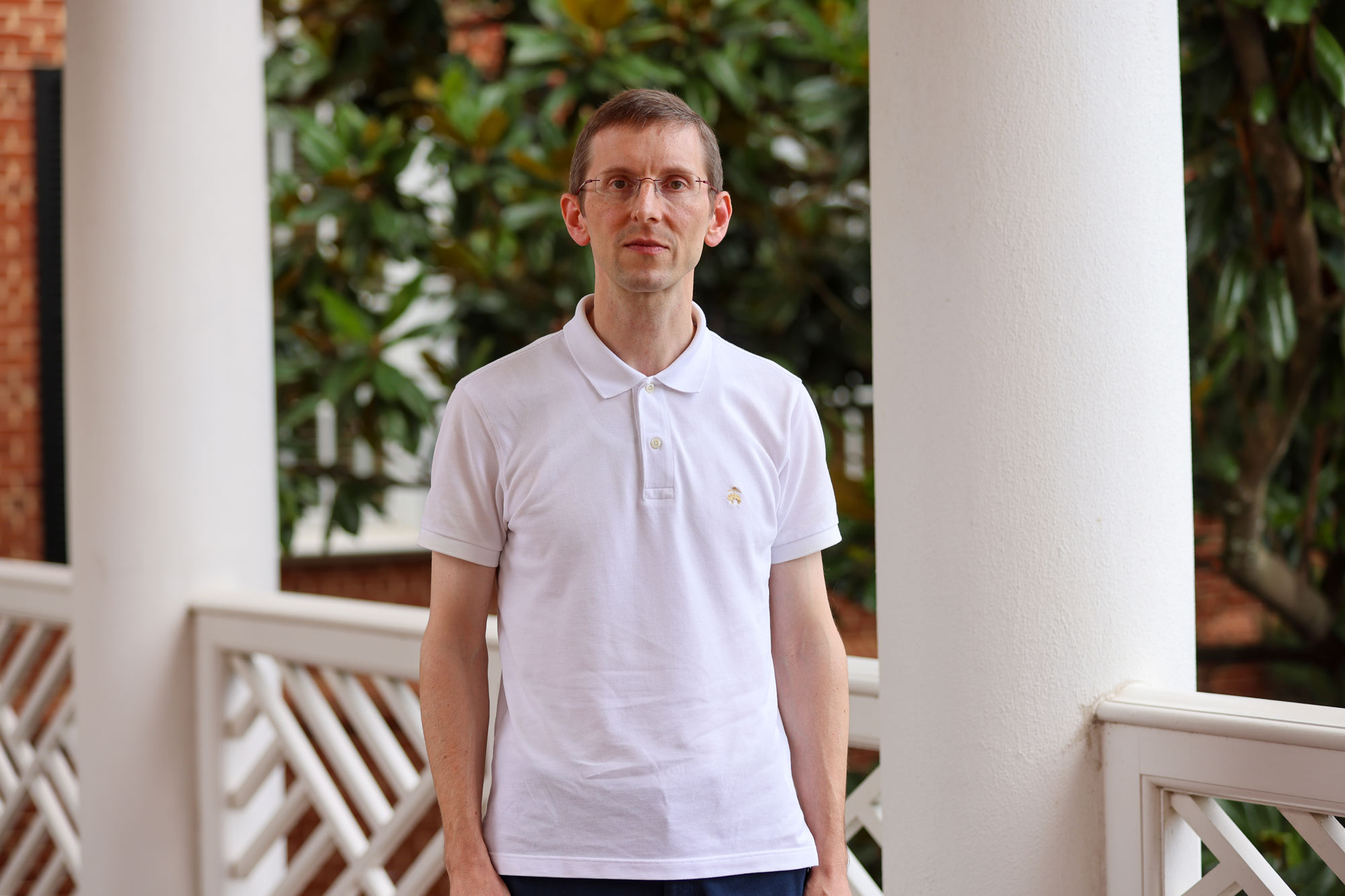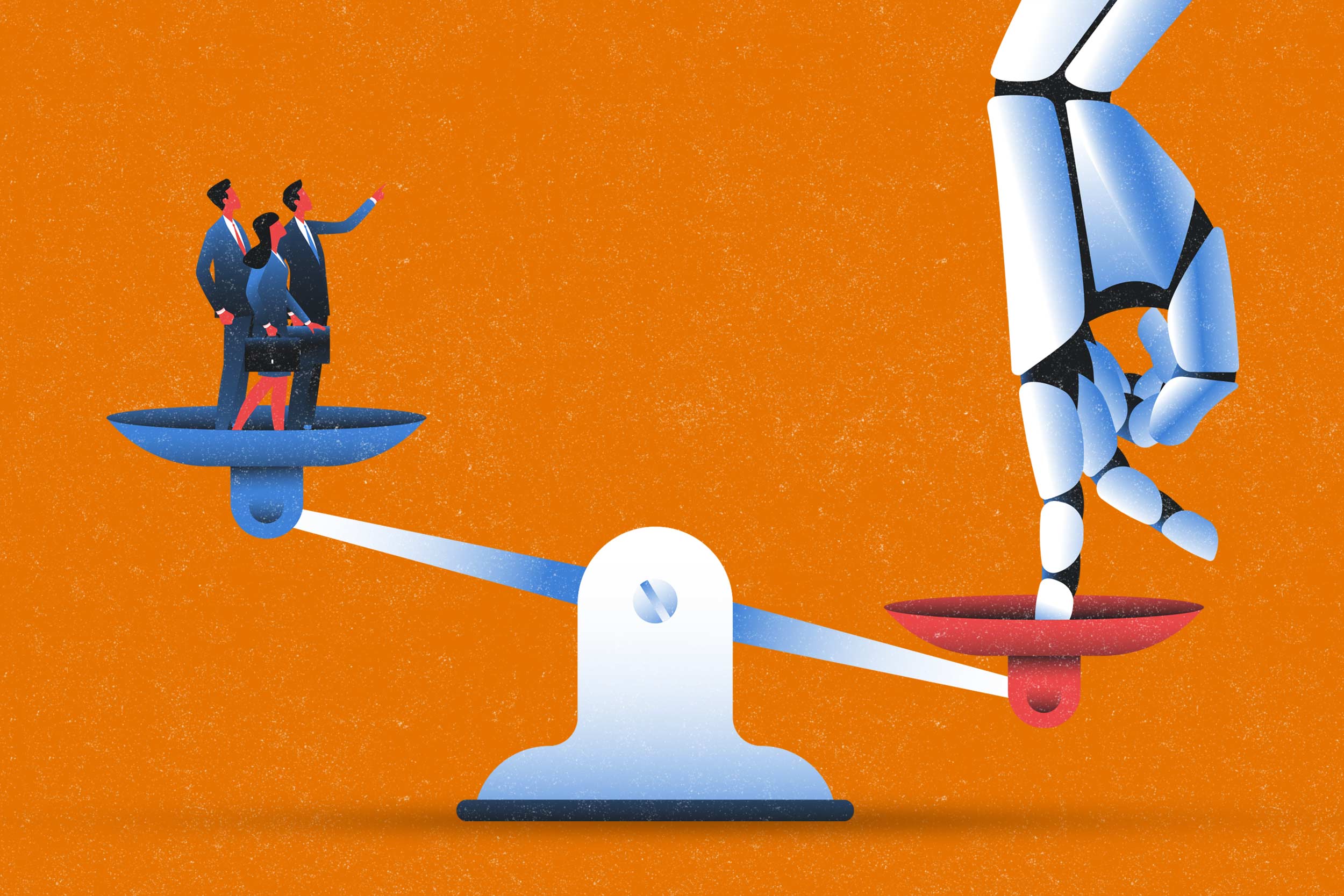University of Virginia economist Anton Korinek has been named to Time’s third annual list recognizing the 100 most influential people in artificial intelligence.
Korinek, a professor in the Department of Economics in UVA’s College and Graduate School of Arts & Sciences, is one of the leading figures exploring the rapidly evolving economic impact of artificial intelligence on the world and the challenges inherent in harnessing its potential, while preparing for the risks it may pose. Korinek is also affiliated with UVA’s Darden School of Business.

UVA professor Anton Korinek’s extensive studies of artificial intelligence and what it means for society – good and bad – lands him on Time’s list of the 100 most influential people in the field of AI. (Photo by Caroline Mackey)
His work showcases how AI can revolutionize white-collar work and paints a cautionary picture of the disruption that may occur if AI takes over jobs faster than humans can adjust.
“We are not prepared,” Korinek said. “The leading AI companies are developing a technology that could transform our world as profoundly as the Industrial Revolution did two centuries ago, but compressed into a fraction of the time. Back then, we created machines that surpassed human physical strength; now we’re creating machines that could surpass human cognitive abilities. Combine the two, and there’s little that can’t be automated.”
The Time list divided 100 AI visionaries into four categories: Leaders, Innovators, Shapers and Thinkers. Korinek was included in the “Thinkers” category along with leaders at OpenAI, Google, the Massachusetts Institute of Technology and Harvard University. The “Thinkers” also included artists, film editors and Pope Leo XIV.
Earlier this year, Korinek was one of a handful of international experts selected to deliver a report to the G7 nations of the United States, Canada, France, Germany, Italy, Japan and the United Kingdom on how AI might affect the world’s leading economies.
Korinek predicts that transformative AI will deliver remarkable breakthroughs in medicine and the sciences, creating immense opportunities for human advancement. Yet it may also bring unprecedented disruption, particularly to employment. In worst-case scenarios, it could lead to mass impoverishment – an outcome Korinek calls both an economic and moral failure.










